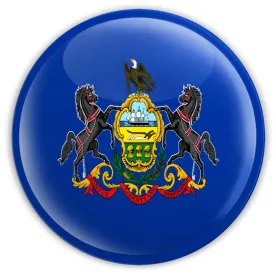Last week, in Ford v. Ushealth Grp., Inc., 3:19-cv-01091, 2020 U.S. Dist. LEXIS 63040 (M.D. Pa. Apr. 10, 2020), a Pennsylvania district court issued a mixed ruling in a TCPA class action regarding personal jurisdiction. The court found personal jurisdiction over the claims of a Pennsylvania named plaintiff but not a Texas plaintiff and punted on the issue of whether it had personal jurisdiction over the claims of putative class members.
Plaintiffs allege that they received unsolicited telemarketing calls in violation of the TCPA from Ushealth Group, Inc. (“USHG”) and its wholly-owned subsidiary, Ushealth Advisors (“USHA”). Plaintiff Ford is a Pennsylvania resident whose cell phone has a Pennsylvania area code. Plaintiff Pershwitz is a Texas resident. Defendant USHG, which is not “at home” in Pennsylvania, argued that the Court lacked personal jurisdiction over it for Plaintiffs’ claims because USHG did not have any meaningful contacts with Pennsylvania, the calls at issue were made by independent agents employed by USHA, USHA was a separate and distinct company from USHG, and USHG did not control, authorize or otherwise direct USHA agents. While USHG submitted an affidavit to this effect, the court found the affidavit insufficient, concluding: “Since the crux of this dispute revolves around the extent of the relationship between USHG and USHA, the vast majority of the evidence relevant to this issue lies within USHG’s own custody. Thus, in raising this factual challenge, we would expect USHG to provide more affirmative proof rather than a general denial of Plaintiffs’ allegations.”
In light of the above, and accepting the complaint allegations as true that USHG was directly and vicariously liable for the calls at issue, the Court found that there was specific personal jurisdiction over Plaintiff Ford’s TCPA claim because Ford is a Pennsylvania resident. However, as to Plaintiff Pershwitz’s claims, the Court found that there was not specific jurisdiction over USHG because Pershwitz, a Texas resident, “has not pled a connection between USHG’s alleged behavior and Pennsylvania.”
As to USHG’s motion to dismiss the claims of the non-Pennsylvania putative class members based on the Supreme Court’s decision in Bristol-Myers Squibb Co. v. Superior Court of California, 137 S. Ct. 1773 (2017), the Court – following the lead of the D.C. Circuit in Molock v. Whole Foods Mkt. Grp., Inc., 952 F.3d 293 (D.C. Cir. 2020) – concluded that the motion was premature because the putative class members were not yet parties to the litigation.
While the Court did not tip its hand on how it would rule on the Bristol-Myers Squibb question, it is worth noting that the Court did dismiss Pershwitz’s claims even though Pershwitz is a putative class member. We at TCPA will continue to monitor this case and the other decisions that address whether Bristol-Myers Squibb applies to class actions. Stay tuned.




 />i
/>i
